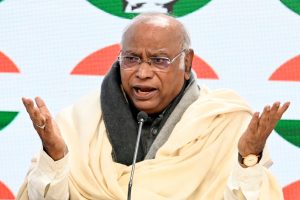India and Cambodia on Saturday signed four agreements, including one on mutual legal assistance in criminal matters and another on a $ 36.92 million line of credit for a water resource development project, as the two countries resolved to enhance defence ties and combat terrorism.
India was committed to continuing development partnership with Cambodia in priority areas. It would increase the number of Quick Impact Projects (QIP) from five to ten annually in Cambodia, Prime Minister Narendra Modi announced at a joint press conference with Cambodian Prime Minister Hun Sen.
India would also help in setting up a Centre of Excellence in IT and IT-enabled services in Cambodia. The two sides also agreed on a $ 20 million concessional line of credit by India for construction of transmission line in Cambodia and agreed to work towards its signing in the near future, a joint statement issued at the end of wide-ranging talks between the two leaders said.
The Cambodian leader, who was in India as ‘Guest of Honour’ for the Republic Day along with other ASEAN leaders, was on a State visit to India on Saturday. He thanked India for its continued support for narrowing the development gaps within and between ASEAN member-states by enhancing capacity building and sharing technical expertise through utilisation of the Project Development Fund.
The joint statement said the two sides agreed on an early signing of a Bilateral Investment Treaty. They noted with satisfaction the progress in regional connectivity efforts such as the India-Myanmar-Thailand Trilateral Highway and agreed to explore the possibility of extending this highway further to Cambodia and beyond. On defence cooperation, the two leaders expressed satisfaction at the current state of ties, including ship visits and training programmes. They agreed to further enhance defence ties, including through exchanges of senior- level defence personnel and capacity building projects.
They expressed keen interest in enhancing cooperation in maritime domain, including sustainable marine development and protection and preservation of marine and coastal environment, anti-piracy cooperation, security of sea lanes of communication to maintain peace and ensure safety and security of navigation in the Indo-Pacific Region.The two leaders agreed that terrorism was a curse on human-kind and posed a grave threat to global peace, security and stability. They unequivocally condemned terrorism in all its forms and manifestations and underscored that there was no justification whatsoever for acts of terrorism and recognised that terrorism could not be and should not be associated with any religion, nationality, civilisation or ethnic groups.










